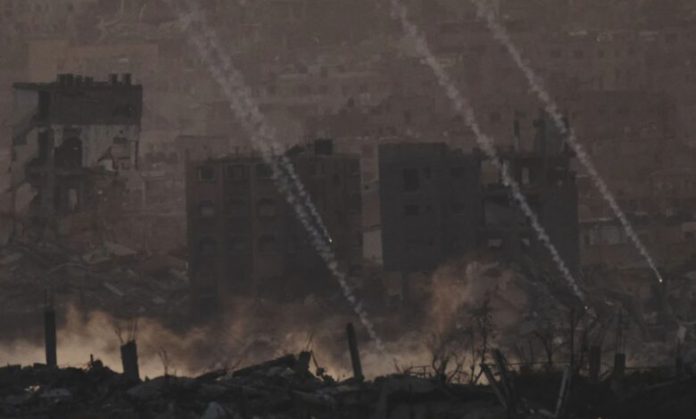Gaza— A major communication blackout has plunged large parts of southern and central Gaza into isolation for the past week, as Israeli airstrikes continue to pound the besieged territory, as per a report by the Xinhua. The breakdown has severely disrupted humanitarian operations, medical services, education, and basic connectivity for Palestinian families already battling constant fear and deprivation.
According to the Telecommunications Regulatory Authority, Israeli strikes have damaged a key telecommunications connection, cutting off both mobile and internet services in major sections of the Gaza Strip. Telecom provider Paltel confirmed on Friday that limited services have been restored in areas like Khan Younis, but many central and southern zones remain disconnected.
Paltel warned that continuous Israeli attacks on critical infrastructure are preventing effective maintenance and could soon make repairs impossible. The region faces a dire shortage of materials and fuel, further compounding the crisis.
UN agencies and humanitarian groups are struggling to reach those in need. Juliette Touma, Communications Director at UNRWA, said most of their workers are unreachable in blackout zones, making coordination nearly impossible. “Telecommunications have been used as a weapon of war against civilians,” she stated.
In many cases, the only communication is a fleeting message from a brave team member who risks climbing rooftops under bombardment to send out a single text. E-sims have limited use and are not compatible with all devices.
The frequent disruptions—at least 10 major outages since October 2023—have cut off vital access to information on food, water, and medical aid. With over 70% of Gaza’s telecom infrastructure destroyed since the war’s onset, displaced Palestinians remain unaware of evacuation orders or safe zones, putting countless lives at risk.
“People are isolated, unable to speak to family or understand the latest threats,” said Shaina Low of the Norwegian Refugee Council. Ambulances, civil defense, and medical workers cannot respond effectively to emergencies.
Fikr Shalltoot of Medical Aid for Palestinians said healthcare workers are unable to share critical updates with headquarters, affecting aid delivery and documentation.
Education in Gaza has also come to a standstill. With schools and universities bombed, online education was the only hope for students—until the blackout shut it down. “This is a vicious cycle. When we fix one region, another goes down,” said Mohammed Shbair of al-Azhar University.
He added that students cannot attend in-person classes, nor access internet in cafes or shelters, as these too are targeted by strikes.
Online banking—crucial for families amidst a cash shortage—has also been halted, cutting off financial transactions for suppliers and families in need.
UNICEF spokesperson Tess Ingram described connectivity as a “lifeline” for families. “In a context of endless bombings, starvation threats, and disease, lack of communication adds to the toxic stress Palestinians endure daily,” she said.
As Gaza continues to suffer under military siege, the communications blackout stands as yet another tool of collective punishment. Without access to the outside world, the people of Gaza remain cut off, vulnerable, and voiceless—yet again.




